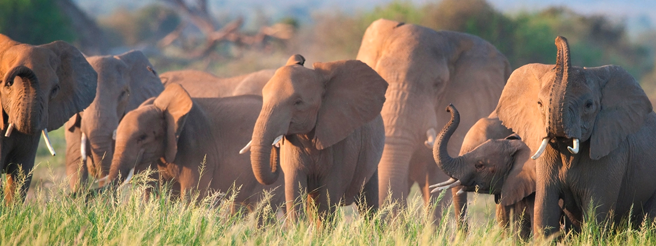Poaching, the illegal trade in wildlife that is a highly organized, sophisticated criminal activity on an industrial scale, has become the 4th largest criminal enterprise worldwide followed only by drug smuggling, human trafficking and counterfeiting. Statistics show the illegal trade in wildlife is 26% higher than previously thought making it a $23 billion enterprise per year.
This activity mainly centers around Southern Africa where the majority of wildlife still roams freely. The dealers’ activities include species that are already threatened with extinction and others that could become on the endangered species list. Protected animals like elephants, rhinos, grey parrots, primates, foul along with endangered species are in high demand for this illegal activity.
As an example elephants, the largest land mammal, roamed in their natural habitats by the millions. But during the modern era their numbers have dramatically diminished to an estimated 450,000 to 700,000 African elephants and 35,000 to 40,000 Asian elephants due to years of environmental changes, mainly lack of rain destroying their feeding grounds of grasses, leaves, bamboo, bark and roots to satisfy their appetite of 300 to 400 pounds of food a day. Their habitats have been minimized by land development and the most hideous of reason perpetrated by man…. poaching.
The elephants’ average natural life span is 65 years or more but they have been and still are killed, about 70,000, for their tusks to satisfy the lucrative ivory market. Ivory tusks are harvested in a legal controlled manner but poaching is still about 80% of elephants’ deaths. Conservationists and governments have been successful in combating poaching although it still is an on going battle and hopefully will be completely eradicated in the near future. Internationally, various countries have banned the importation of ivory. Some of this work is being done through the Convention on International Trade in Endangered Species (CITES). In 1988 the African Elephant Conservation Act was passed banning the importation of ivory into the U.S. and allowing the US government to enforce strict action against illegal ivory imports and providing funds for elephant field conservation projects.
Efforts to stop poaching have included on-the-ground protection for animals and heavy prison and monetary consequences. Many non-profit organizations promote alternative, more sustainable ways for poachers to earn a living while also trying to decrease demand for illegal wildlife and wildlife parts. If the market for these animals is diminished, the killing will stop.
 Food
Food Farmers
Farmers Sustainable Living
Sustainable Living Living Planet
Living Planet News
News